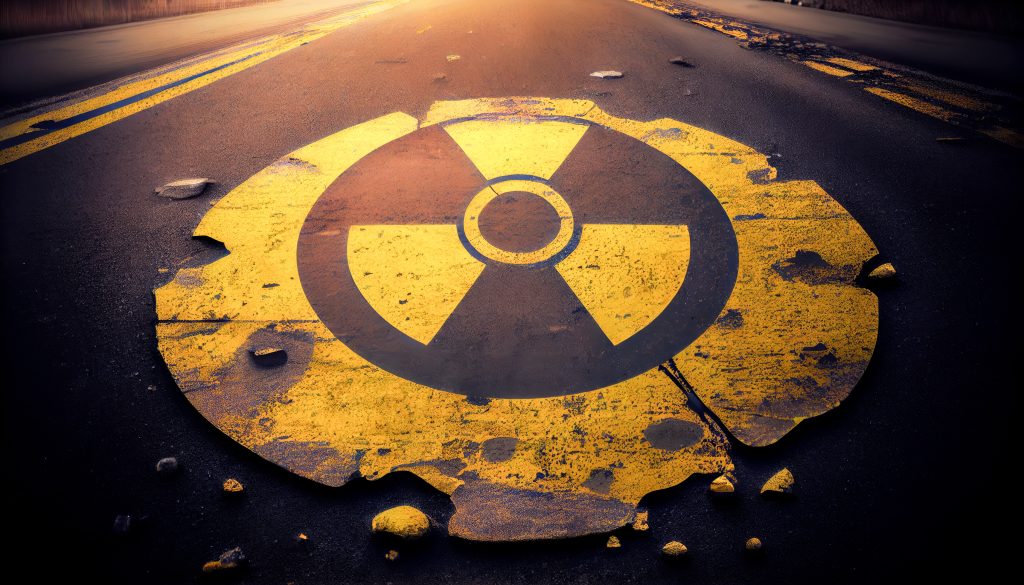Do you truly grasp the gravity of nuclear conflict? Brace yourself for the eye-opening insights from the Nuclear Threat Initiative (NTI) paper on the risks of nuclear weapons. This paper emphasizes the pressing need to reevaluate the global impact of these destructive weapons. In today’s interconnected world, where our systems intertwine and economies rely on each other, we face unforeseen vulnerabilities and the looming dangers of societal, economic, industrial, and political breakdowns. Alarming as it may be, countries remain alarmingly unprepared to confront these risks head-on. Join us as we delve into the historical context of nuclear winter, its influence on nuclear policy debates, and the crucial questions surrounding the role and consequences of nuclear weapons. Together, we can safeguard our national and global security. Stay informed with NTI for the latest updates on nuclear threats.
Global Effects of Nuclear Conflict
Understand the catastrophic consequences of nuclear conflict by exploring the global effects of nuclear weapons. The implications of nuclear conflict are far-reaching and have significant consequences for the world. The use of nuclear weapons can lead to devastating effects on the environment, climate, and human populations. The vulnerabilities exposed by nuclear conflict highlight the urgent need for preparedness and policy considerations.
The consequences of nuclear use have often been overlooked in discussions on nuclear policy. However, the complexity of modern global systems introduces new vulnerabilities that can result in cascading failures across various sectors. Societal, economic, industrial, and political systems are at risk in the event of nuclear conflict.
Countries are dangerously unprepared to address these risks. The lack of attention to the catastrophic effects of nuclear conflict leaves nations ill-equipped to mitigate the potential consequences. It is crucial to prioritize preparedness and develop effective policies to minimize the impact of nuclear weapons.
Considering the global effects of nuclear conflict is essential in shaping nuclear planning and national security strategies. The recognition of these effects changes the perceived utility of nuclear weapons and highlights the need for comprehensive risk reduction measures. Neglecting research into cascading nuclear effects in policy discussions can lead to catastrophic miscalculations and endanger both national and global security.
Historical Context
You need to understand the historical context of nuclear weapons to fully grasp the risks associated with them. The paper provides valuable insights into the U.S. defense community’s reception of the scientific revelation of nuclear winter in the 1980s. During that time, the implications of global effects of nuclear use became a subject of debate within the U.S. defense community. These debates were centered around how U.S. nuclear policy should account for the potential consequences of nuclear use on a global scale.
The importance of considering these implications remains relevant today, particularly in our interconnected and economically interdependent world. Without a comprehensive understanding of the interconnectedness of global systems, our national security strategies may be based on an incomplete understanding of the consequences of nuclear use.
The historical context provided in the paper highlights the need to address critical questions regarding the role and perceived utility of nuclear weapons in national security strategies. It also underscores the importance of considering the cascading effects of nuclear war in nuclear planning. Unfortunately, the research into these cascading effects has been neglected in nuclear policy discussions, leaving countries dangerously unprepared to address the risks associated with nuclear conflict.
To ensure the safety and security of our world, experts and policymakers must urgently address these critical questions. Only through a comprehensive understanding of the historical context and implications of nuclear use can we develop effective strategies to mitigate the risks and consequences of nuclear weapons in our interconnected world.
Critical Questions
To fully comprehend the risks associated with nuclear weapons, it is crucial to address several critical questions. First, how does the recognition of global nuclear effects change the role and perceived utility of nuclear weapons in national security strategies? The understanding of the potentially catastrophic consequences of nuclear use should shape the way nations view the role and necessity of these weapons.
Second, how should the cascading effects of nuclear war shape nuclear planning? The complexity of modern global systems introduces new vulnerabilities and risks of societal, economic, industrial, and political failures. It is essential to incorporate these cascading effects into nuclear planning to mitigate potential catastrophic outcomes.
Third, why has research into cascading nuclear effects been neglected in nuclear policy discussions? Neglected research can lead to miscalculations and an incomplete understanding of the consequences of nuclear use. Addressing this gap is crucial to ensure informed decision-making.
These critical questions must be answered by experts and policymakers to avoid catastrophic miscalculations and to safeguard national and global security. By addressing these issues, we can gain a comprehensive understanding of the risks associated with nuclear weapons and develop strategies to mitigate them effectively.
Importance of Addressing Cyber Risks to Nuclear Weapons
Addressing cyber risks to nuclear weapons is crucial in ensuring the safety and security of these powerful weapons. In order to effectively address these risks, a global diplomatic approach is needed, with cooperation between the United States and Russia playing a vital role. Here are the key points to consider:
- Global Diplomacy:
- A coordinated international effort is necessary to tackle the growing cyber risks to nuclear weapons.
- The involvement of all relevant nations is crucial in developing effective cybersecurity measures.
- United States Russia Cooperation:
- The cooperation between the United States and Russia is essential in reducing cyber risks to nuclear weapons.
- Both countries have a mutual interest in avoiding the use of nuclear weapons, making their collaboration vital for maintaining global security.
It is important to recognize the potential consequences of a cyberattack on a nuclear weapons system, as it could trigger catastrophic and unintended conflict and escalation. To mitigate this risk, it is recommended to refrain from cyber interference in nuclear weapons systems, improve the cybersecurity of respective nuclear systems, and adopt procedures to ensure approval at the same level for any operation involving technologies that could disrupt another nation’s nuclear deterrence mission.
Recommendations for Reducing Cyber Risks
Mitigate the potential risks posed by cyberattacks on nuclear weapons systems by refraining from interfering in these systems and improving their cybersecurity. Reducing entanglement between conventional and nuclear assets is crucial in minimizing vulnerabilities. Conduct fail-safe reviews to identify and address any potential weaknesses in the cybersecurity of respective nuclear systems. Increasing transparency and communication during periods of heightened tension can help prevent misunderstandings and unintended escalations. Implement approval procedures that ensure all operations involving information and communications technologies are reviewed at the same level, particularly when they could disrupt another nation’s nuclear deterrence mission. Unilateral risk reduction actions can enhance cooperation between nations, especially between the United States and Russia, and should be pursued. It is essential to maintain and strengthen cooperation on key nuclear security issues despite geopolitical tensions. By adopting these recommendations, the global community can work together to reduce the cyber risks associated with nuclear weapons and minimize the potential for catastrophic conflicts triggered by cyberattacks.
Maintaining Cooperation Between the United States and Russia
Maintain cooperation between the United States and Russia to effectively address the risks of nuclear weapons. This is crucial in the face of the current global climate crisis and the growing cyber nuclear threat. To achieve this, the following measures should be considered:
Cooperative measures:
- Foster open and transparent communication channels between the United States and Russia to build trust and facilitate collaboration on nuclear security issues.
- Explore joint initiatives and agreements that focus on risk reduction, such as arms control treaties and confidence-building measures.
Political situation improvement:
- Actively work towards improving the political relationship between the United States and Russia to create a conducive environment for cooperation.
- Engage in diplomatic efforts and dialogue to address areas of disagreement and build common ground on nuclear security.
Unilateral risk reduction:
- Both countries should independently take steps to reduce the risk of nuclear conflict, such as implementing unilateral risk reduction measures.
- Strengthen cybersecurity protocols and enhance the resilience of nuclear systems to protect against cyber threats.
Cooperation between the United States and Russia is essential in effectively addressing the risks of nuclear weapons. By maintaining cooperation, both countries can work together to mitigate the global climate crisis, reduce the threat of cyberattacks on nuclear systems, and ultimately enhance global security.
Multiple Approaches to Reduce Nuclear Crisis Risks
To effectively reduce the risks of nuclear crisis, it is important to adopt multiple approaches simultaneously. Minimizing crisis risks and preventing nuclear conflict require a comprehensive set of risk reduction measures. Addressing the global implications of nuclear crisis is crucial in order to prevent catastrophic consequences. One way to emphasize the importance of multiple approaches is through the following table:
| Approaches | Benefits |
|---|---|
| Diplomatic negotiations | Promote dialogue and understanding between countries |
| Arms control agreements | Limit the number and types of nuclear weapons |
| International cooperation | Foster collaboration and shared responsibility for nuclear security |
| Crisis communication | Establish clear channels of communication to prevent misunderstandings |
Implementing these approaches simultaneously enhances the effectiveness of nuclear crisis prevention efforts. Diplomatic negotiations promote dialogue and understanding, reducing the likelihood of miscommunication or miscalculation. Arms control agreements limit the proliferation of nuclear weapons, reducing the overall risk. International cooperation fosters collaboration and shared responsibility, ensuring that all nations work together to address nuclear security. Finally, crisis communication establishes clear channels of communication, enabling swift and effective communication during times of heightened tension.





